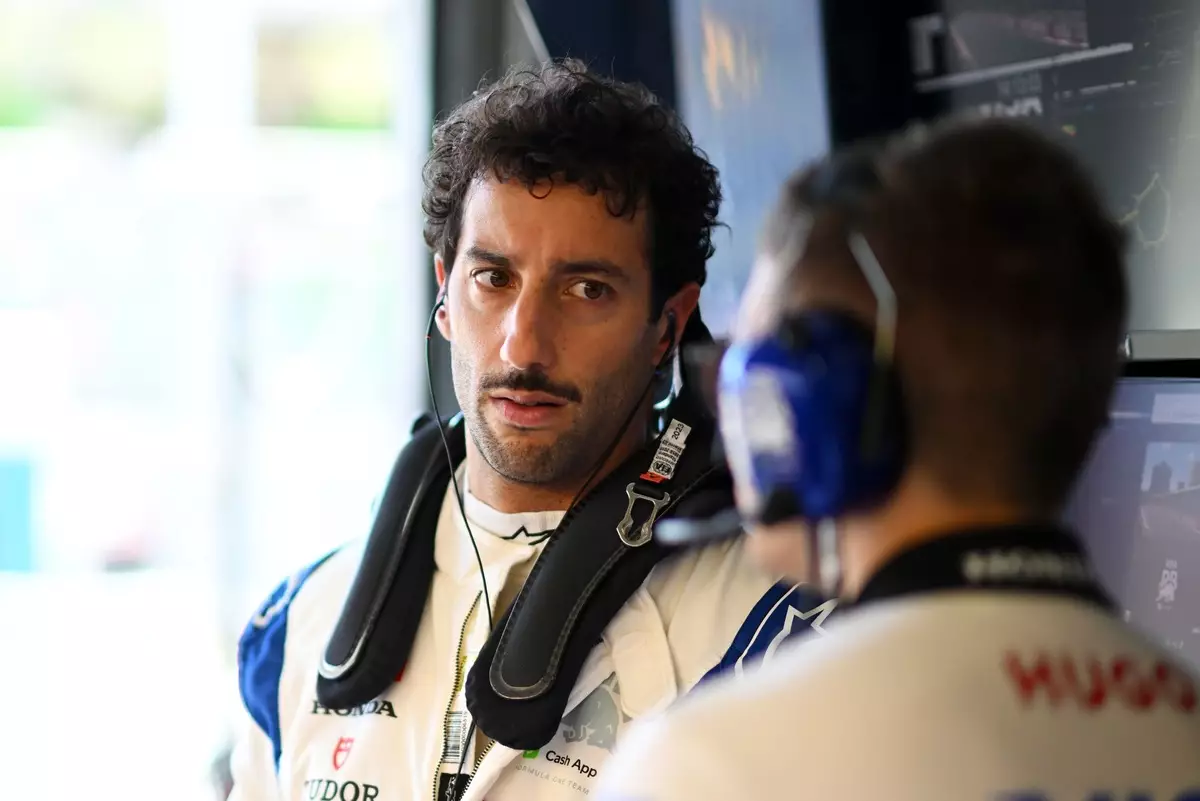The saga of Daniel Ricciardo’s tenure at Red Bull Racing is a classic example of the complex interplay between driver performance, team dynamics, and the relentless pursuit of success in Formula 1. Once a celebrated figure within the team, Ricciardo’s recent stint in what was supposed to be a revitalizing return has instead ended in disappointment, highlighting not only the challenges faced by the veteran driver but also revealing critical lessons for the Red Bull organization regarding adaptability and support.
Ricciardo’s re-engagement with Red Bull last summer was laden with optimism. Given a second chance to show his worth after a year of struggle at McLaren, he was also positioned as a potential replacement for Sergio Perez, who was on shaky ground during the 2023 season. However, fate intervened at the Dutch Grand Prix when a hand injury, resulting from a practice crash, curtailed his comeback. This setback forced Ricciardo to gamble on a full off-season to prep for the subsequent year. Despite the extensive preparation, including the promise of the new VCARB 01 car, Ricciardo found himself grappling with consistency, eliciting immediate concerns about both his capability and the operational efficacy of the team.
In the world of Formula 1, sporadic flashes of brilliance are often insufficient when consistency is paramount. While Ricciardo showcased moments of his former glory, as seen during stellar performances in Miami and Canada, these isolated instances did not translate into a stable season. Red Bull’s team principal Laurent Mekies candidly acknowledged this dichotomy, emphasizing the challenge of maintaining pace across all races. Mekies stated, “Did we manage to keep Daniel in that sweet spot often enough? No, that’s the reality.” This acknowledgment begs a deeper investigation into whether Ricciardo’s struggles stemmed from deficiencies within the car itself or from underlying issues regarding team-dynamic support during trying times.
Mekies’ reflection on Ricciardo’s performance communicates a significant revelation—namely, that success in Formula 1 is a collective endeavor. The Red Bull management took responsibility for not meeting Ricciardo’s needs, explaining that the inability to secure a consistently performant car that he felt comfortable with hampered his efforts. The idea that a driver needs not merely to have speed but to feel confident and settled within the vehicle cannot be overstated. As Ricciardo faced challenges, the team began reassessing its approach to car development, learning from his technical feedback and utilizing it to widen the exploratory bandwidth of their performance envelope.
Ultimately, Ricciardo’s departure after the Singapore Grand Prix signified a pivotal transition for Red Bull Racing, as they brought in reserve driver Liam Lawson. Lawson’s effective performances have positioned him as a potential long-term teammate for reigning champion Max Verstappen, further highlighting the consequences of Ricciardo’s unfulfilled promise. The evolution from Ricciardo to Lawson represents not just a change in personnel but also an expansion of the team’s horizons—in essence, a move towards greater adaptability in challenging circumstances.
The narrative surrounding Daniel Ricciardo’s stint at Red Bull Racing is replete with lessons and insights for drivers, teams, and stakeholders alike. While at first glance, it may appear a tale of missed opportunities, a closer examination reveals a chapter rich in learnings about performance consistency, team dynamics, and the critical nature of driver support systems. For Red Bull Racing, the experience serves as a guiding benchmark as they navigate future challenges, ensuring they remain committed to fostering an environment where talent can thrive irrespective of obstacles. As they look ahead to the upcoming seasons, it is imperative for both the management and drivers to harness the experiences drawn from Ricciardo’s time, crafting a narrative of resilience, growth, and ultimately, success.


Leave a Reply